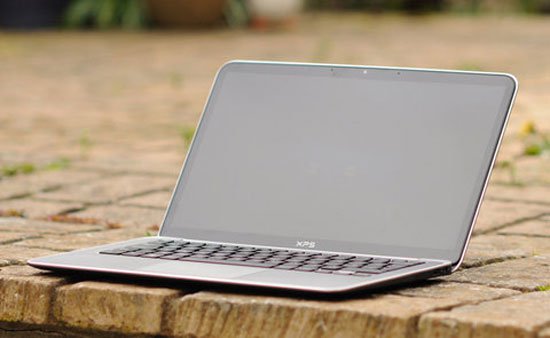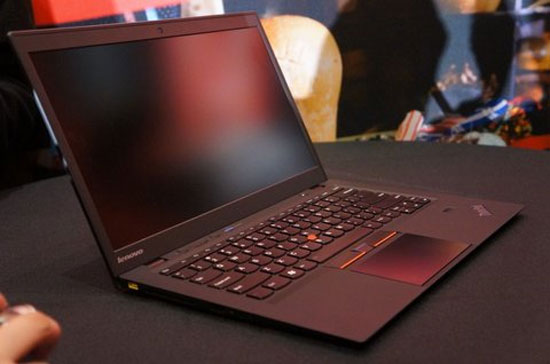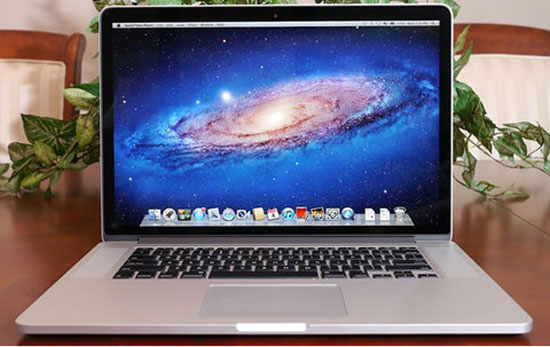Ultrabook made the computer revolution
Once considered a "copy" of the MacBook Air, ultrabook gave users a different definition of themselves with a variety of designs and features.
Windows-based computers are making the most radical "makeover" since IBM introduced the first personal computers in three decades ago. In particular, ultrabook and Windows 8 are the two leading factors creating this transformation.
The slim ultrabook design has made it impossible for netbooks to: Bring powerful performance, battery and mobile experience. Although initially considered a " copy" of the MacBook Air, over time, these ultra-thin computers are gradually making users change the definition of ultrabook in particular and personal computers in general.

Ultrabook represents the future PC generation, not the tablet. (Photo: Pocket-lint).
Personal computers, products once considered a personal digital revolution in the past, have become ancient before the " sexy" tablet and smartphone models that are connected anytime, anywhere. Therefore, manufacturers are forced to change to adapt to the trend of equipment and new generation of users. The fact that Microsoft unveiled the Surface tablet - a type of computer running Windows 8 - demonstrates the flexibility of personal computers to match the current digital age.
However, the new ultrabook design with slim and light design represents the future of the computer industry, not the tablet. Although the tablet also offers great multimedia browsing and entertainment experiences, users don't want to be limited by that. They still need keyboards as well as better working tools. Therefore, while integrated into the product all the best features on the tablet like touch, healthy battery, but manufacturers ultrabook still retains the strengths of the ability to handle the work of ordinary computers.

iPads are one of the factors that make users more interested in consuming digital content on mobile devices instead of viewing them as merely hardware.(Photo: Cultofmac).
According to Computerworld, the personal computer revolution is defined by three main factors: ability to stay connected, electronic cloud and high mobility. In addition, users also play an important role in this process by concentrating on the consumption of digital content on devices instead of just seeing them as pure hardware. There, users of smartphones and tablets in general, iPhone and iPad in particular, take the lead in this trend.
At the time of personal computers being in the "pregnancy" stage (before IBM's product was launched), the smartphone market was strongly fragmented. Each manufacturer at that time had different directions about their customers' needs. Only when iPhone launched, most of the new mobile phones began to have in common and the trend of using accompanying data services became popular. Computer manufacturers, although having a slow start, are also gradually catching the trend.

The ThinkPad X1 Carbon is one of the few products that has 3G integration.(Photo: Talk-iPhone).
First of all, about the ability to stay connected. Many ultrabooks are not enthusiastic about enhancing connectivity for their products. The current market has very few models with integrated broadband connectivity, even Macbook Pro and MacBook Air do not yet have. However, this situation may change in the future because 4G networks are being used more widely and electronic cloud services have become an important part of operating systems.
Microsoft's upcoming Surface Tablet shows the evolution of new generation computers. The Windows RT-based version of the ARM chip is tied to the Microsoft application store, just like Apple's iPad with iTunes. Meanwhile, the version of Windows 8 Pro represents the ultra-thin futuristic computers - a form of ultrabook with the appearance that the tablet is capable of operating as a traditional Windows desktop.
Microsoft's new tablet and Windows 8 operating system anticipate a complete change in the way the "software giant" defines computers. The electronic cloud service that was once considered a "decorative accessory" is now an indispensable part of the Windows operating system. SkyDrive helps Microsoft expand its ecosystem on both tablet and mobile phones, not just limited to each PC.

Ultrabook revolution made a part thanks to Apple products.
(Photo: Techspot) .
The revolution that ultrabook made is partly thanks to Apple. The successes gained from the iPad, iPhone and MacBook Air have forced traditional PC makers to explore and research new designs. Although not really strong pressure on market share for desktop manufacturers running Windows, Apple laptops are gradually gaining ground with increasing sales.